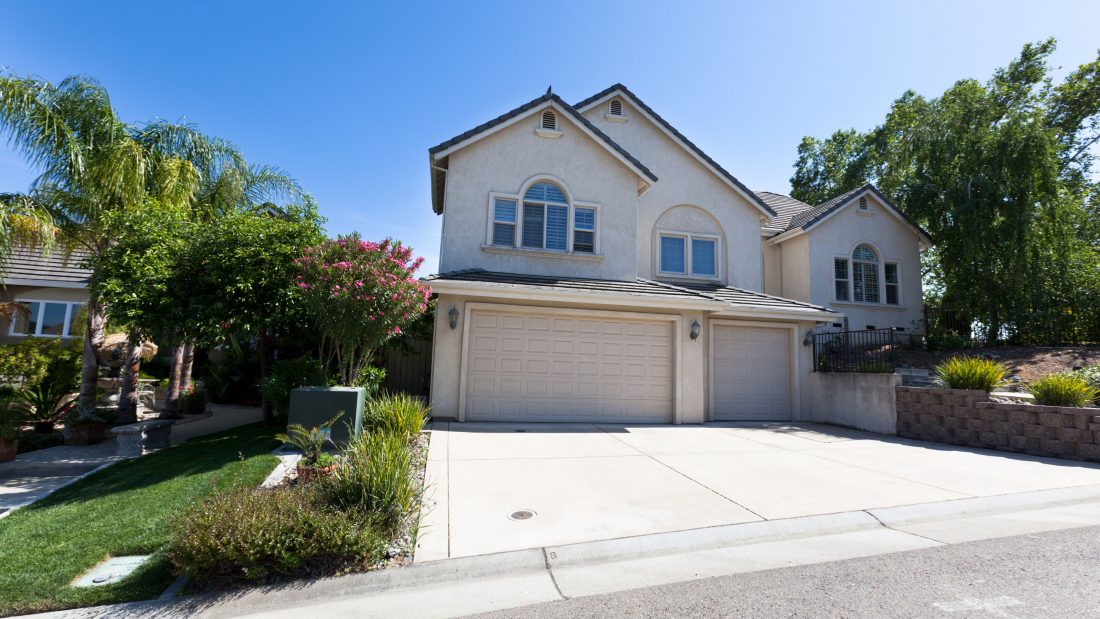This is a sponsored guest post.
Garage doors are not only a main entry point but also act as secure storage for most homes to keep their vehicle and possessions. Extensive exposure to the elements and the nature of their functions exposes them to a relatively rapid wear and tear process. Therefore, it is advisable to keep a vigilant eye on your garage door. It will help you catch and fix any issues before they get worse and probably more costly. The kind of intervention required on a garage door in case of a problem depends on many factors.

Why should you maintain your garage door in good shape? A garage door serves several functions in a homestead. Any damage, regardless of the extent, compromises its functionality. For instance, a broken garage door can pose security threats by allowing intruders and pests entrance into your premises. Similarly, garage doors are conspicuous hence of aesthetic value to your house and property in general. A damaged garage door translates into a diminished curb appeal for the property, which might even affect its value.
Most people choose to repair to replacing their garage doors because it seems to be the cheaper option. In some instances, however, this might not be the case. Sometimes the cost of repair might exceed that of replacement. In this case, it is advisable to replace rather than repair the door.
We spoke with Garage Doors Repaired, a Bridgend based garage doors repair and installation company, for some insight into what types of damage can be repaired and when you should bite the bullet and replace the whole door.
Four major factors dictate the nature of the intervention required for a garage door. These factors are:
- The type of damage
- The extent of the damage
- Cost
- The age of the door
The Type of Damage
The three major types of damage that can happen to your garage door and prompt you to either want to repair or replace it are discussed below.
Functionality Damage
This type of damage is severe, and it derails the normal functioning of your door. It occurs in several ways, and they include; when your garage door won’t close or open properly, makes loud noises when opening or closing, or it is stuck. The intervention will depend on the extent of the functionality damage. If only a few parts require fixing, then repairing can be preferred. But in most cases, functionality damage is widespread. Hence, replacing the entire gate is in order.
Structural Damage
This is medium damage often caused by extreme weather conditions. Warping and rusting is a common example of structural damages. The structural integrity of the gate is compromised, and its functionality is affected. You will struggle to operate a structurally damaged door; hence it is advisable to replace it. If your door was old, this could give you a chance to upgrade to a better one.
Cosmetic Damage
This is minor visible damage that has no impact on the structural integrity or functionality of your garage door. It is the most basic type of garage door damage, and it includes fading of the paint, chipped paint, and cracks. Causes of cosmetic damage can be age, severe weather conditions, normal wear and tear from occasional impact.
The Extent of the Damage
How badly damaged your door is a key factor in determining whether you should repair or replace it. If the damage is insignificant, you should consider repairing it as an option. For example, this would be in the case of a small crack. If, however, the damage is extensive and several parts require attention, you should consider replacing the door.
Cost
Repair is usually a cheaper choice when it involves a few parts of the gate. A severely damaged garage door might require several components to fully repair. When the estimated cost of repairing an old garage door surpasses the cost of a brand-new garage door, replacement becomes the best choice in this scenario.
The Age of the Door
The lifespan of a garage door depends on its use and maintenance. But like everything else, even the strongest garage door is subject to ageing. The only solution to an ageing garage door is a replacement. A newer door is less likely to need repair. In contrast, an older door may require frequent repairs, and this can be costly. Similarly, replacing an older door allows you to update your garage door’s technology and general outlook.
When to Repair
You should not neglect negligent issues on your garage doors. Small issues can transition into major problems when overlooked. Therefore, you should be swift in repairing your garage door when the need arises. The following are some of the situations that might require you to repair your garage door:
- If it suddenly stops working
- If it seems heavy
- If a single part is damaged
- When the door is sagging
When to Replace
Rigorous damage on your garage door may prove futile to repair and prompt you to replace the entire door. Replacement can also increase your property value immediately by boosting your curb appeal. The following are some of the situations you will be required to substitute your garage door altogether:
- If it makes Excessive noise when during operation
- If it persistently malfunctions even after repairs
- When the door is severely damaged
- Old age
- If its energy consumption is high
- If it lacks essential safety features
After substitution or repair of your garage door, it is essential to adopt preventive maintenance measures to help identify minor problems on time. Some practical preventive measures include looking inspecting pulleys and cables, evaluating the door’s balance, cleaning the tracks and rollers, and tightening any loose hardware.




